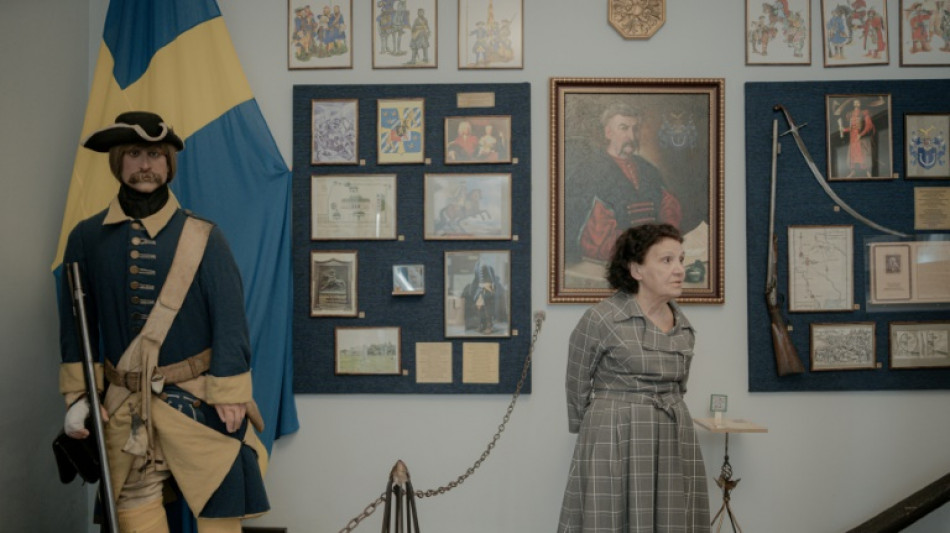
-
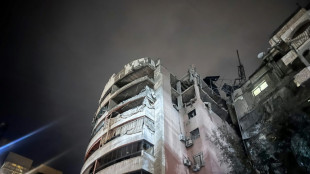 Hezbollah official targeted in deadly Israeli strike on Beirut
Hezbollah official targeted in deadly Israeli strike on Beirut
-
Israel PM drops security chief nominee under fire from Trump ally
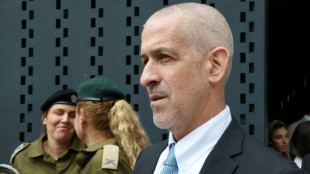
-
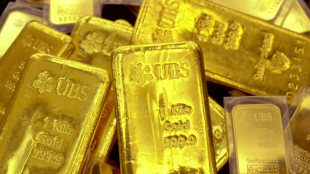 Stock markets edge up but Trump tariff fears dampen mood
Stock markets edge up but Trump tariff fears dampen mood
-
South Korea court to rule Friday on president impeachment

-
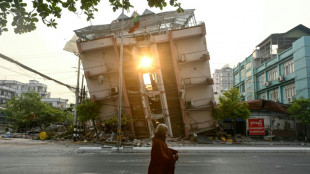 'Can collapse anytime': Mandalay quake victims seek respite outdoors
'Can collapse anytime': Mandalay quake victims seek respite outdoors
-
Stock markets edge back but Trump tariff fears dampen mood
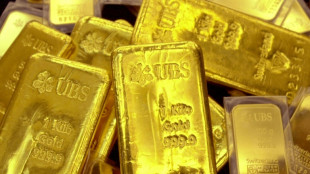
-
 Myanmar holds minute of silence for more than 2,000 quake dead
Myanmar holds minute of silence for more than 2,000 quake dead
-
Kenya president still handing cash to churches despite his own ban
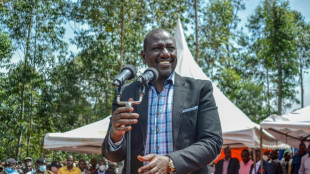
-
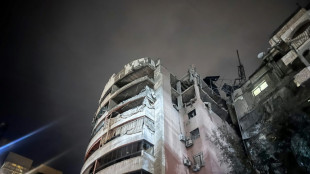 Israeli strike on Beirut kills three
Israeli strike on Beirut kills three
-
Russia-born Kasatkina says 'didn't have much choice' after Australia switch

-
 Carmakers face doubts and jolts over US tariffs
Carmakers face doubts and jolts over US tariffs
-
China holds large-scale military drills around Taiwan
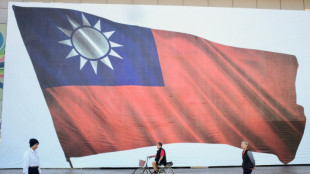
-
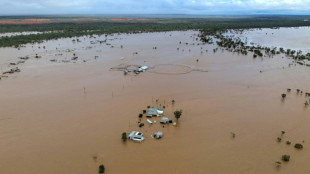 'Heartbreaking' floods swamp Australia's cattle country
'Heartbreaking' floods swamp Australia's cattle country
-
South Korean baseball put on hold after fan killed at stadium

-
 Celtics, Thunder power toward NBA playoffs, Lakers shoot down Rockets
Celtics, Thunder power toward NBA playoffs, Lakers shoot down Rockets
-
French prosecutors demand Volkswagen face fresh Dieselgate trial

-
 Sam Mendes to launch four 'Beatles' movies in same month
Sam Mendes to launch four 'Beatles' movies in same month
-
Battery boom drives Bangladesh lead poisoning epidemic
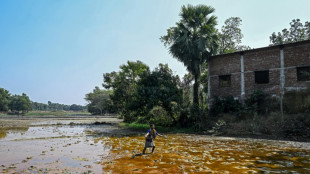
-
 South Korea president impeachment ruling Friday: court
South Korea president impeachment ruling Friday: court
-
Israel strikes Hezbollah operative in Beirut, kills 3
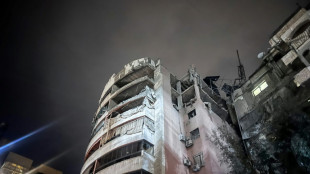
-
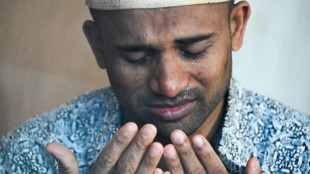 Desperate Rohingya mark Eid in Indonesia limbo
Desperate Rohingya mark Eid in Indonesia limbo
-
Sam Kerr has 'full support' of Australia squad, vice-captain says

-
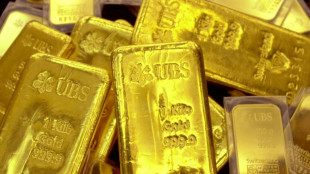 Asian markets edge back but Trump tariff fears dampen mood
Asian markets edge back but Trump tariff fears dampen mood
-
Teenage opener Konstas gets Australia contract with Ashes on horizon
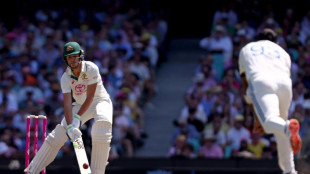
-
 S. Korea court to rule Friday on President Yoon impeachment
S. Korea court to rule Friday on President Yoon impeachment
-
Myanmar to hold minute of silence for more than 2,000 quake dead

-
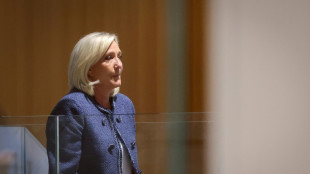 Far-right leaders rally around France's Le Pen after poll ban
Far-right leaders rally around France's Le Pen after poll ban
-
SpaceX launches private astronauts on first crewed polar orbit

-
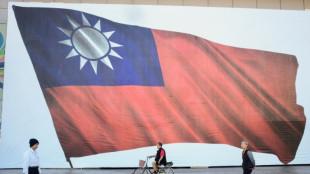 China launches military drills around Taiwan
China launches military drills around Taiwan
-
Political support leading to increasing fallout for crypto

-
 France's Le Pen seeks to keep presidency hopes alive after election ban
France's Le Pen seeks to keep presidency hopes alive after election ban
-
Trump tariffs threaten Latin American steel industry
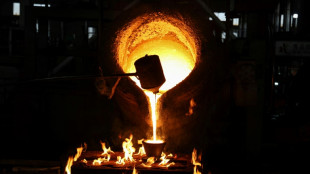
-
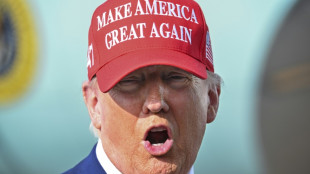 'Tariff man': Trump's long history with trade wars
'Tariff man': Trump's long history with trade wars
-
Tariffs: Economic 'liberation' or straitjacket?
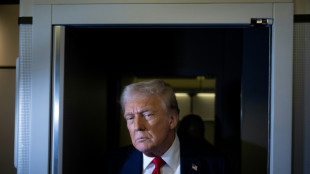
-
 Undocumented migrants turn to Whatsapp to stay ahead of US raids
Undocumented migrants turn to Whatsapp to stay ahead of US raids
-
What next for Venezuela as Trump goes after oil revenues?

-
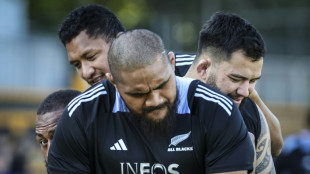 New Zealand Rugby and Ineos settle sponsorship dispute
New Zealand Rugby and Ineos settle sponsorship dispute
-
China says launches military exercises around Taiwan
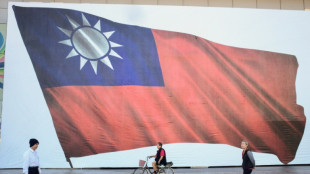
-
 Team New Zealand fails in bid to host 2027 America's Cup
Team New Zealand fails in bid to host 2027 America's Cup
-
DEA’s Marijuana Legal Blunder and Loss: MMJ Serves Up an April Fools ‘Gift’ a Gut Punch LawSuit for Irreparable Harm

-
 iSON Xperiences Appoints Ricardo Langwieder as Global Chief Sales Officer to Drive Growth and Innovation
iSON Xperiences Appoints Ricardo Langwieder as Global Chief Sales Officer to Drive Growth and Innovation
-
Zeus North America Mining Corp. Defines High-Priority Drill Targets at Cuddy Mountain

-
 Fluent Bit v4 Released: Transforming Telemetry Data Management
Fluent Bit v4 Released: Transforming Telemetry Data Management
-
Helium One Global Ltd Announces Jackson-4 Flow Testing and Gas Sampling Analysis

-
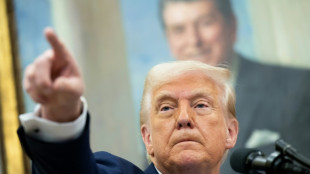 Trump says will be 'kind' with tariffs as deadline looms
Trump says will be 'kind' with tariffs as deadline looms
-
OpenAI says it raised $40 bn at valuation of $300 bn
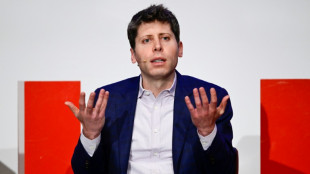
-
 Safely back on Earth, once-stranded US astronauts ready to fly again
Safely back on Earth, once-stranded US astronauts ready to fly again
-
Syria president says new authorities can't satisfy everyone
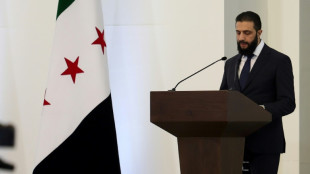
-
 US robbers who touted crime on Instagram jailed
US robbers who touted crime on Instagram jailed
-
Fernandes 'not going anywhere', says Man Utd boss Amorim
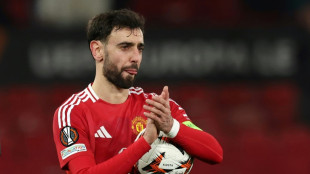

Ukrainian museum moves to 'decolonise' history
The quiet and echoing rooms of the museum in Poltava, dedicated to an 18th-century battle in central Ukraine, belie a struggle in the war-torn country on how far to go in recasting Russia's role in history.
The Russian invasion has seen Ukraine step up sweeping "de-colonisation" measures, including the removal of symbols of tsarist and Soviet domination.
Kyiv's efforts to remove Soviet monuments and symbols began in 2014, when Russian forces annexed the Crimean peninsula and backed armed separatists in the east of the country.
But new laws passed in the second year of Russia's full-scale invasion seek to go even further, forcing the Poltava museum to respond to claims it has not gone far enough to revise Kremlin-supported narratives.
The sleepy city, around 350 kilometres (220 miles) east of Kyiv, was the scene of a decisive June 1709 battle when the forces of Russian Tsar Peter the Great defeated the troops of Swedish King Charles XII in what is widely seen as the moment when Russia became a major European power.
"Over more than 300 years, a complex myth has been created around the Battle of Poltava," said Lyudmyla Shendryk, a guide who has worked at the museum for over 40 years.
In the years following the battle, the Russian empire captured more Swedish territory and Russia became the dominant power in eastern Europe.
- Hero or traitor -
Peter the Great spent vast sums to present the victory in Poltava as the result of a "genius" ruler selected by God, Shendryk said.
The Swedish king was allied with Ukrainian Cossack leader Ivan Mazepa, who had previously backed the tsar before going over to Sweden, and was presented by Russia as the ultimate traitor.
In 1828, in a famous poem, "Poltava," the Russian poet Alexander Pushkin depicted Mazepa as a pitiful and evil old man, reinforcing this negative legend in Russian culture.
Other Ukrainians were also fighting on the side of Peter the Great, Shendryk said, but under Soviet leader Josef Stalin the USSR embraced an "imperial narrative" in which the "brother peoples" of Russians, Ukrainians and Belarusians fought a "partisan war" against "Swedish interventionists" and Mazepa's "exploiters".
The museum presented this interpretation of history until Ukraine's independence from the USSR in 1991, after which it was transformed, she said.
Today, Mazepa, who was educated in Europe, spoke numerous languages and was a fervent patron of the arts, is presented in the museum as a national hero who wanted to preserve the independence of Ukrainian Cossacks against Russian expansionism.
In 2020, the museum created a display disproving "10 Russian myths" about Poltava, including the "treachery" of Mazepa.
"Mazepa wasn't a traitor to his own people," said Volodymyr, 25, a history teacher in Poltava.
But a decolonisation campaign can succeed only when it steps out of the archives and libraries and reaches young people via social media, he added.
- 'Act of genocide' -
Nor has the campaign gone far enough for some Ukrainians.
In 2024, one of the country's most widely read newspapers, Ukrainska Pravda, published an article accusing the museum in Poltava of continuing to glorify "Russian arms".
It accused the museum of not giving enough details of a massacre carried out by Russia in 1708 in the capital of Mazepa's realm, Baturyn, that led to thousands of deaths, calling it "an act of genocide".
A statue of Peter the Great in front of the museum was wrapped up in black plastic in June 2022 and then taken down in February.
The director of the museum, Nataliya Bilan, does not hide her dismay at such attacks, while acknowledging that decolonisation requires for her staff "a profound reinterpretation" of the facts.
Thousands of Ukrainian soldiers pass through Poltava trains to the front, and many stop by to visit the museum, Bilan said. In the vestibule, under a flag signed by fighters, a message thanks the museum for maintaining the "Сossack spirit".
Museum guide Shendryk said she sees her mission as analysing the causes of the "catastrophe" in Poltava, so it does not happen again.
"We need to be brave, not remain silent or close our eyes to the complex or disagreeable pages in our history," she said.
"And one of these disagreeable pages is, above all, our lack of unity."
Y.Nakamura--AMWN